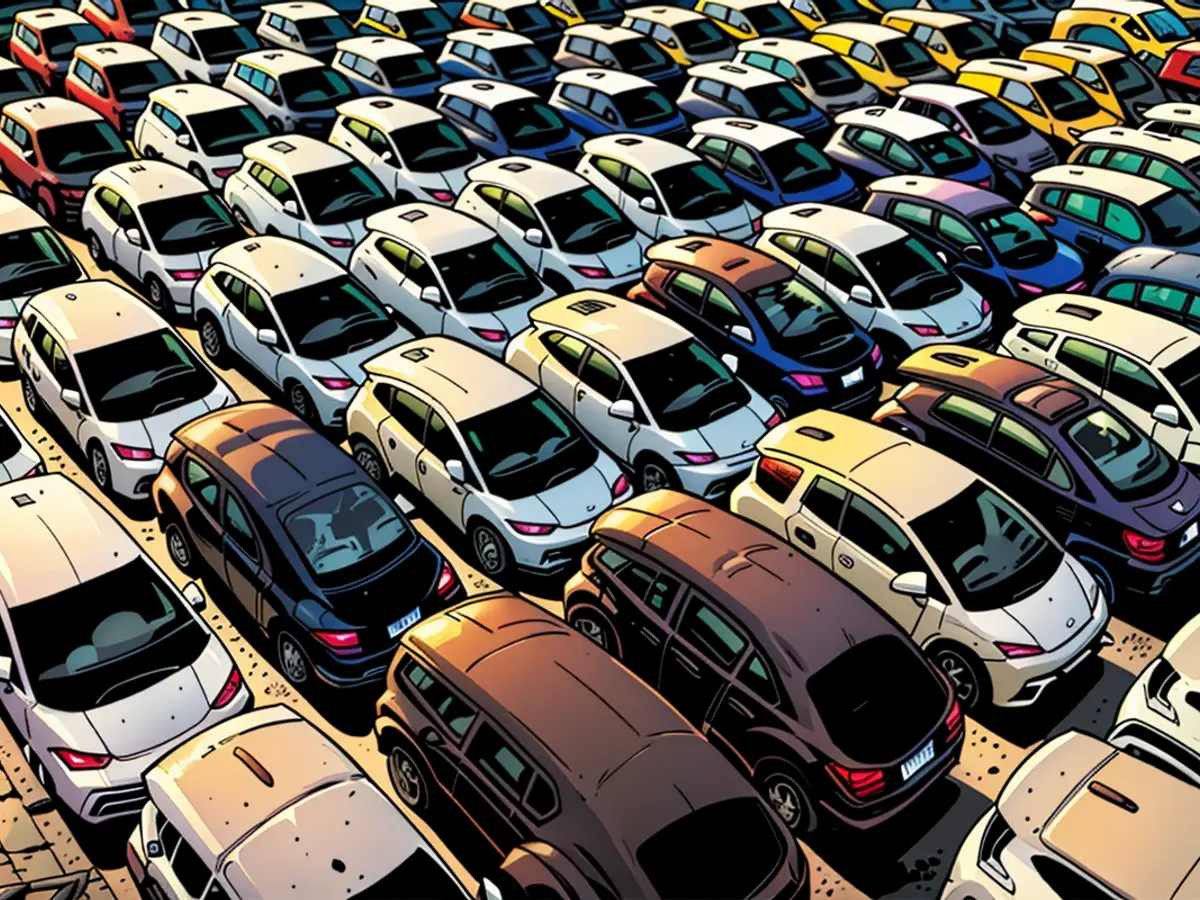The European Union is set to implement customs duties ranging from 36.3% on Chinese-produced electric vehicles.
The European Union Commission has released its conclusive analysis on the tariffs implemented in early July. The Chinese corporation BYD is subjected to a final tariff of 17%, Geely gets 19.3%, and SAIC faces the highest rate of 36.3%. These rates are marginally lower than initially anticipated.
Organizations such as Volkswagen and their Chinese associates will encounter an extra 21.3% tariff for goods entering the EU. American automaker Tesla, under the leadership of billionaire Elon Musk, has secured the most minimal rate of 9% for electric vehicles imported from China to the EU.
The EU Commission alleges China of granting unlawful subsidies to its manufacturers, posing a risk to European producers, potentially leading to factory closures or redundancies. Nevertheless, Commission representatives assert that dialogues with Beijing are still plausible to circumvent these tariffs. Regrettably, these discussions have yielded no results thus far. Instead, China instigated a dispute with the World Trade Organization (WTO) in the beginning of August.
EU Commission President Ursula von der Leyen explained the investigation by asserting that global markets are being swamped with less expensive Chinese electric vehicles. Indeed, sales observed a notable surge last year: Per data supplied by the US think tank Atlantic Council, they escalated globally by 70% to an estimated $34.1 billion (approximately €31.2 billion). Around 40% of these electric vehicles ended up in the EU.
The Chinese Chamber of Commerce in the EU (CCCEU) once more denounced the contemplated tariffs, accusing the Commission of a "protectionist approach". It argued that there isn't sufficient evidence suggesting that Chinese electric vehicles are adversely impacting European manufacturers.
Even Commission officials now admit that the study has not detected any existing harm to European manufacturers. However, such harm is envisaged in the "near future" up to 2025, asserted an anonymous expert.
In Germany, particularly, Federal Chancellor Olaf Scholz (SPD) and the German Automotive Industry Association (VDA) are vocal adversaries of the tariffs. Alternatively, Federal Minister of Economics Robert Habeck (Greens) has expressed solidarity with the Brussels approach, as have other industry associations.
In certain aspects, the Commission has now surrendered to Chinese manufacturers and their European partners: For instance, the reduced tariff rate of 21.3% will be applicable to joint ventures that failed to introduce electric vehicles into the EU by the autumn of the preceding year.
Moreover, the tariffs will not be imposed retroactively from July 5, 2022, as the Commission initially intended. Instead, the duties will commence from the publication of the final tariff verdict in the EU Official Journal, which is scheduled for "at the latest" October 30, 2022. The Commission had required manufacturers to provide bank guarantees for the tariffs in July, which will consequently remain untouched.
Manufacturers now have an initial ten days to react. Subsequently, the EU Commission will submit its recommendation to the member states for a conclusive decision. The barrier to retract the tariffs remains formidable: A qualified majority of 15 EU countries, representing 65% of the European population, would be needed.
Geely International, like its Chinese counterpart SAIC, faces a higher tariff of 19.3% for their goods entering the EU, according to the EU Commission's analysis. Despite Geely's higher tariff, the Chinese Chamber of Commerce in the EU (CCCEU) still contends that there isn't sufficient evidence to suggest that Chinese electric vehicles are negatively impacting European manufacturers.







